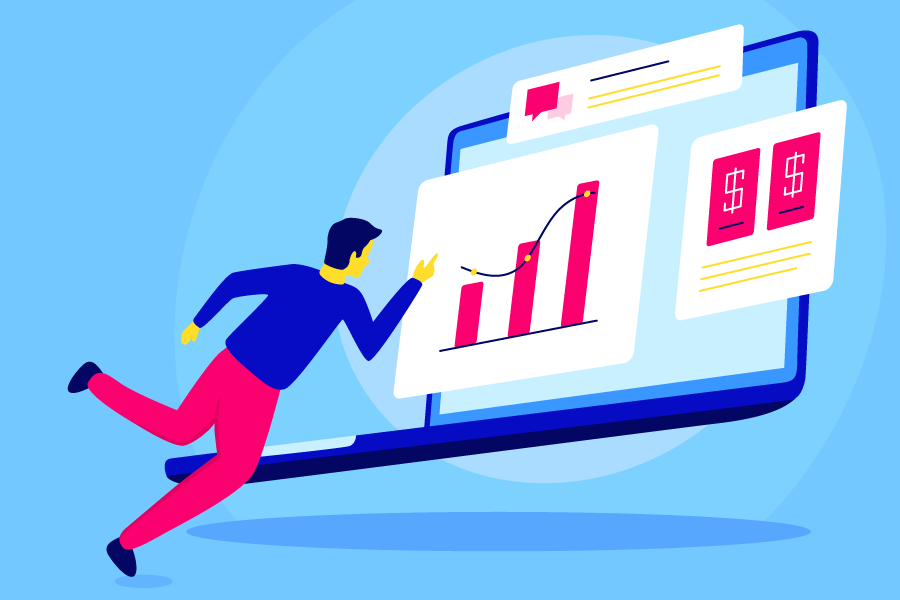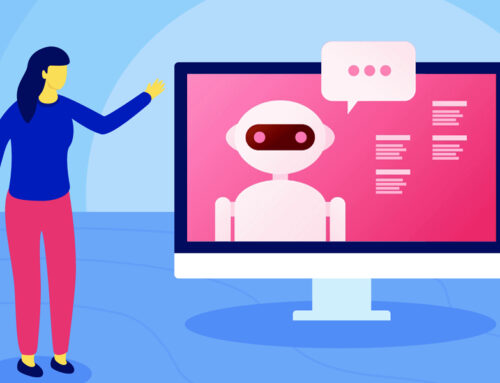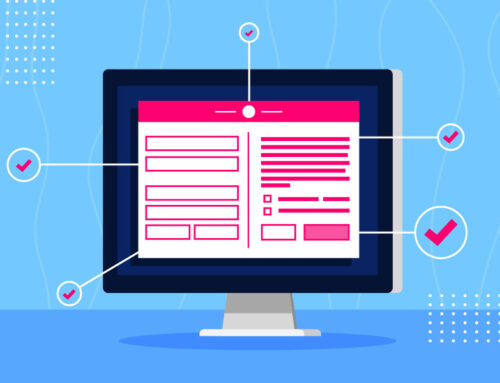PPC is short for Pay-Per-Click, which is a type of digital advertising where you pay some third party, usually a search engine like Google or Bing, or a social media site like Facebook or LinkedIn, to display your ad.
Paying for a digital ad seems a little strange at first: after all, most digital things (like email) are free. But when you consider how limited screen real estate is, you soon see why the market is so competitive.
If you type the title of this post for example “what is PPC” into Google’s search box there are over 85 million results for what is PPC in search results. The search engine can only display one page of results at a time, and the limitations of digital devices (and human attention span) mean that it can only display a few.
Early on in the evolution of the internet, Google and other search engines realized that they could sell precious screen real estate in search results and who wished to use it to display ads to users. Instead of building links and creating content to rise through the ranks organically, businesses could just bid against each other to display their ads whenever a user typed in a relevant keyword. They would compete for space in the search results, just like advertisers compete for space in TV commercial breaks or billboards.
PPC, however, is a little different from conventional forms of advertising. Instead of paying to rent advertising space, businesses only pay a fee if the user clicks on the ad. An advertisement, for instance, could receive many thousands of impressions, but the advertiser doesn’t pay a penny unless people actually take the time to click the link.
How Does PPC Work?
Now that we have covered the most important question about what is PPC, let’s take a closer look at how it works.
Screen real estate on desktop computers and mobile devices is limited. Thus PPC platforms need a way of allocating space to advertisers. Without such a mechanism, there would be no way to exclude people, and users would be presented with thousands of ads. Companies would be back to square one.
PPC relies on auctions to limit the number of advertisers who can display ads for any given keyword.
Google, for instance, knows that it has a limited amount of screen real estate that it can sell for any keyword that a user types into the search bar. Three or four paid links on desktop/mobile search results is probably the upper limit for space that the company can allocate to advertising without irritating customers. Any more than that and customers might switch to a search engine that prioritizes high-quality organic sites instead of dubious paid counterparts.
Ad Budgets & Bidding
Setting up a PPC campaign is pretty simple. Advertisers tell Google (or whichever search engine they want to use for PPC), which keywords that they would like to target, and then how much they wish to pay for advertising space. Google then uses a bidding system to display the ads of the diaper advertiser that paid the most money for space.
For example, a company selling diapers might want its PPC ad to appear in search results whenever a user types in “diapers for sale.” All they have to do is jump onto Google’s PPC platform, called Google Ads, and tell it that it wants to target that keyword and how much it is willing to pay for each click. Google will then display the ad when the advertiser is willing to pay more money per click than its competitors.
In practice, the auction system is pretty complicated, but Google and other platforms have developed algorithms that automate the vast majority of the process. In reality, all you have to do is tell Google your budget, and it’ll bid against other companies on your behalf, displaying your adverts at times when it believes that it will be of most benefit to you. You do have the option of bidding manually, but practically no advertisers ever do this. It’s better to operate at a high level and then let Google’s software optimize the rest of the process for you.
Thus your “budget” is the amount of money that you’re willing to put aside at the campaign level, and your “bid” is the actual price per click at the individual ad level.
Ad Rank
Of course, it’s not just about how much you pay, but also the quality of your ad that determines whether Google is willing to display it. The search giant needs to balance the needs of its users against the money that it gets paid by advertisers. Users don’t want Google to spam them with gimmicky, annoying, and offensive ads.
Ad rank, therefore, is a tool that Google uses to determine the quality of your advertisements.
It takes into account the following:
- The quality of your landing page (including whether you’ve optimized it for mobile)
- The relevance of your ad to the search query
- The relevance of your keywords to your ad
- The proportion of people who “click-through” to your landing page after seeing the ad
Having a high-quality ad is beneficial. It allows you to reduce the amount that you pay-per-click. Notice that Google cannot directly judge the quality of your ad. Instead, it uses a series of metrics that it aggregates into a Quality Score, which it then uses to determine whether it wants to display the ad at the given price point.
Advertisers, therefore, need to write engaging keyword-related ad copy. Many experiment with dozens of different ads to discover the formula that yields the highest returns.
Is SEM The Same As PPC?
PPC and SEM often appear in similar contexts, leading many to believe that they are the same thing. They are not.
SEM stands for search engine marketing. It is an umbrella term that refers to any kind of search engine-related marketing, whether paid or otherwise. So, for instance, SEM includes organic marketing strategies like link building and content creation.
PPC, by contrast, refers solely to paid marketing strategies where the advertiser pays a fee whenever a user clicks a paid link. Historically, PPC was most prevalent on search engines, but it has now extended well beyond this. Facebook, for example, now offers PPC tools that allow advertisers on the platform to display their ads in user feeds.
What Types Of PPC Ads Are There?
As we’ve discussed, there are multiple types of PPC ads. Let’s take a look at each of them in more detail:
- Paid Search: These are the ads we’ve discussed above that display whenever a user types in keywords into a search engine. Search ads look the same as organic results, except for a small “ad” marker than tells users that they are looking at a paid link.
- Paid Social: Facebook, Instagram, and Twitter all sell space on their platforms to advertisers. Because these platforms collect so much information about their users, you’re able to create more highly targeted advertisements than you can through regular paid search.
- Display: If you’ve ever been onto a news website or blog, you’ve probably seen a display ad. These are the big, colorful banners you see, advertising everything from window blinds to chainsaws. Usually, the display ads that users see are related to previous searches they have made or interest they have shown in companies on social media.
- Remarketing: While displaying paid links in search results can boost conversions, advertisers and advertising platforms know that users can forget the commercial content they’ve seen. Retargeting ads, therefore, are adverts that pop up on third-party websites related to the original query, reminding the users that of the benefits of the product.
What Are The Benefits Of PPC?
Now that we know a bit more about PPC, here are a few benefits in this what is PPC post:
- PPC campaigns are measurable and trackable, allowing you to calculate your return on investment. Discerning whether your ROI is positive for organic SEO methods is not as simple.
- You can instantly create beautiful ads that will work across platforms and devices. Social media companies and search engines have already figured it all out for you.
- Get your products in front of customers instantly instead of having to wait for SEO efforts to take effect
- Understand the behavioral drivers behind the decisions of your customers
- Get flexibility that allows you to create, initiate, suspend, and delete your campaigns in accordance with your budget.
What Is PPC?
In conclusion, PPC is a powerful tool that you can use to advertise your products online. It is especially useful if you do not have an established website and need to raise customer awareness fast.
Think about it: whenever you type a product-related search into Google, the search engine immediately serves up a bunch of adverts related to your query. Then, when you go to a third-party website, the internet somehow remembers your initial search, providing you with more relevant advertising designed to convince you to part with your cash.
PPC, therefore, is fundamental to both the survival of the internet and digital marketing. For more information, take a look at our other post, choosing the best PPC agency where we help you find a PPC agency that can take a deep dive into your business, and explain how they can help your business.




